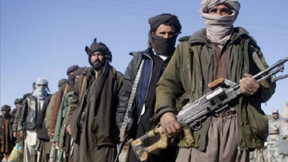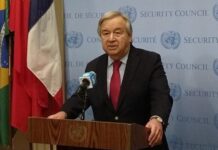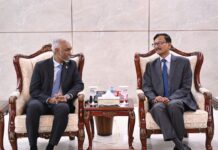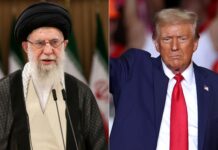 KABUL: The Afghan Taliban today announced Haibatullah Akhundzada as their new chief, elevating a low- profile religious figure after officially confirming the death of Mullah Mansour in a US drone strike.
KABUL: The Afghan Taliban today announced Haibatullah Akhundzada as their new chief, elevating a low- profile religious figure after officially confirming the death of Mullah Mansour in a US drone strike.
The surprise announcement coincided with a powerful suicide bombing near the capital Kabul, which killed at least 10 court employees in an attack that was not immediately claimed by any group.
Akhundzada, who was one of two deputies under Mansour, is seen as a unifying figure in an increasingly fragmented militant movement, though it remains unclear whether he will be in favour of talks aimed at ending the 15-year insurgency.
“Haibatullah Akhundzada has been appointed as the new leader of the Islamic Emirate (Taliban) after a unanimous agreement in the shura (supreme council), and all the members of shura pledged allegiance to him,” the insurgents said in a statement.
It added that Sirajuddin Haqqani, an implacable foe of US forces, and Mullah Yakoub, the son of Taliban founder Mullah Omar, were appointed his deputies.
“The leader of Islamic Emirate of Afghanistan and commander of faithful, Mullah Akhtar Mansour, was martyred, in a US drone strike in… Pakistan’s Balochistan province,” the statement said, in the insurgents’ first confirmation of his death.
US President Barack Obama, who authorised the drone strikes, had confirmed the death Monday. He said Mansour had rejected efforts “to seriously engage in peace talks”, adding that direct negotiations with the Afghan government were the only way to end the attritional conflict.
“The status quo remains unchanged” after Akhundzada’s appointment, Taliban expert Rahimullah Yousafzai told AFP.
“I don’t foresee any shift from Mansour’s policies. He (Akhundzada) is unlikely to negotiate with the Afghan government.”
Other observers say that Akhundzada, who hails from the southern province of Kandahar, is seen as more of a religious figure than a military commander.
“Even if he favours peace talks, he is unlikely to proceed without consensus within the supreme council” where many vehemently oppose negotiations, said analyst Amir Rana.
The Taliban’s supreme council held emergency meetings that began Sunday in southwest Pakistan to find a unifying figure for the leadership post.
Taliban sources told AFP the council members were lying low and constantly changing the venue of their meetings to avoid new potential air strikes.
Mansour’s killing is a major blow to the militant movement just nine months after he was formally appointed leader following a bitter power struggle upon the confirmation of founder Mullah Omar’s death. –AFP






